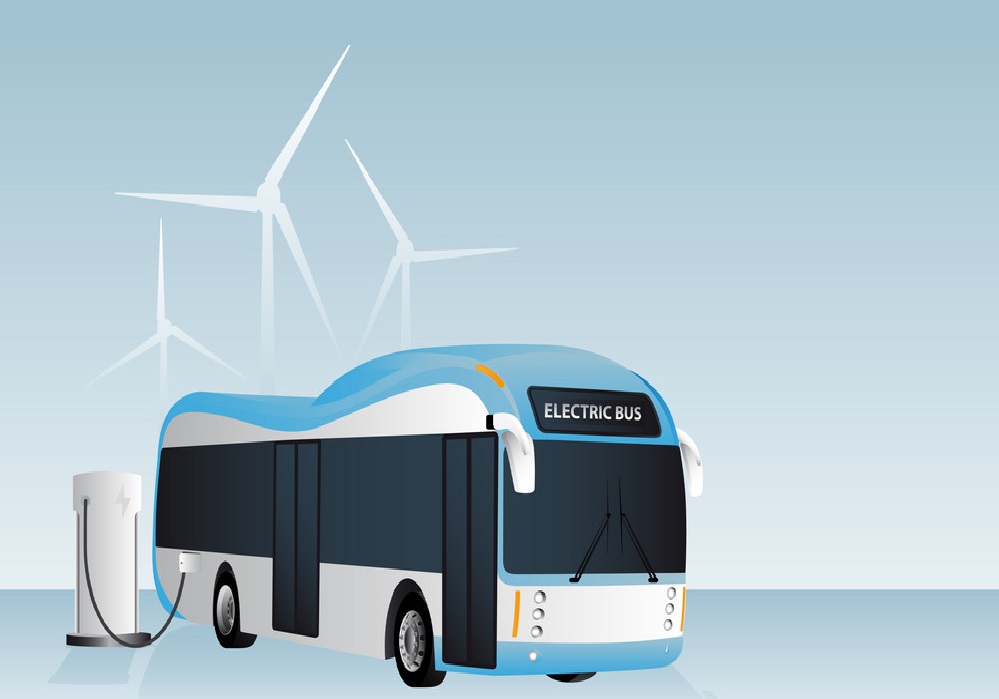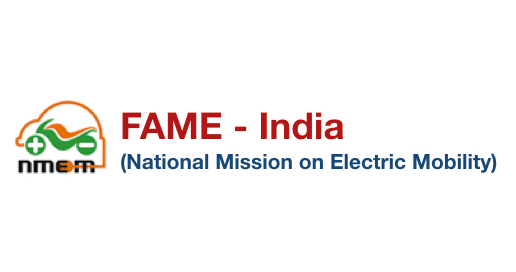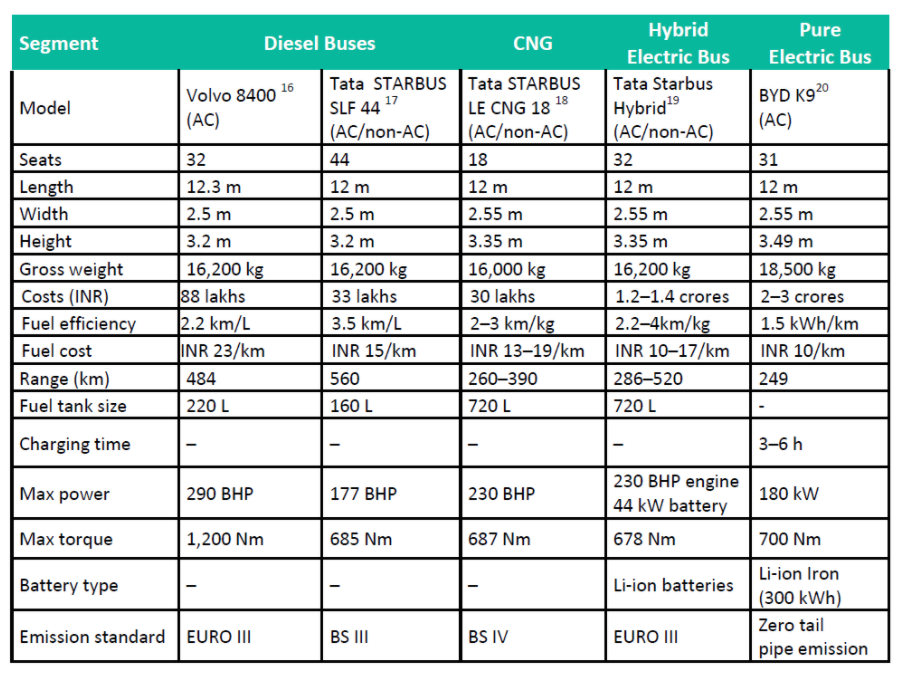
Factors affecting adaptation of Electric Bus
(A) Internal Factors (Relating to the BUS)
1. Purchase Price of Vehicle and Battery Cost:
Electric Bus tends to be more expensive than its comparable ICE (Internal Combustion
Engine) that typically runs in diesel, or natural gas which is most often CNG. Cost of Electric
Bus is approx. two times as compared to ICE or HEV. The obvious purchase decision will be
ICE which is more attractive in every comparable feature against EV which has its USP of
being all-electric. Thus, this trade-off or gap has to be reduced to promote Electric Bus
more practically.
2. Driving Range:
On average the range of diesel bus is about 500 km and a CNG bus is about 300 km. Comparing it with the average range of an Electric Bus in India is about 250 km. This is the greatest limitation. Instead, promotion of Hybrid Buses should be done which solves the purpose of frequent short electric drive and use of gasoline for an infrequent long-distance drive.
3. Charging Time:
ICE engines bus requires maximum of ten minutes for refuelling. On the contrary, Electric Bus takes a lot of time.
Charging time also depends upon type charger used. DC super-fast charger is very efficient in terms of charging but has a high cost. AC fast chargers require to get erected and takes more time than DC super-fast charger. Third type of charging is a portable charger which can be plugged in a 15A socket which takes highest time for charging
Important: Time taken to charge depends on - SOC (State of Charge of battery) and Ambient Temperature (Surrounding Temperature)
4. After-Sales and Maintenance:
Acute shortage of mechanical or technical expertise for service or maintenance in case of breakdown of Electric Bus. There are very fewer technicians who can operate Electric Bus due to lack of training and no prior experience to deal with. Thus, consideration of after-sales and maintenance is given very high weight in automobile sector. Approx. maintenance cost of Electric Bus is 30% lower than that of a bus running on diesel or CNG engine.
Components to be replaced during periodic maintenance: AC Filter, battery Coolant, brake fluid and transmission fluid require to be replaced during periodic maintenance. Parts that undergo wear and tear like wiper blades, brake shoes, etc. will have to be changed as per usage.
(B) External Factors
1. Infrastructure (Roads, Meeting potential demand for electricity, charging points):
Infrastructure is the basic prerequisite to make Electric Bus model successful. Number of infrastructural modifications to make it Electric Bus friendly is in need.
Establishment of charging points in large quantity covering all parts of the country. Development of meeting the demand of electricity of future demand should be kept in mind by the government. Promotion of renewable or atomic power source should be encouraged rather than thermal electricity to achieve the eventual goal of green environment.
2. Government Incentives:
The FAME (Faster Adoption and Manufacture of (Hybrid and) Electric Vehicles) was launched by the Ministry of Heavy Industries and Public Enterprises in 2015 to incentivize the production and promotion of eco-friendly vehicles including electric vehicles and hybrid vehicles

Two phases of the scheme
3. Fuel Prices (Alternative fuels v/s Electricity):
Price of diesel is approx. Rs. 73, CNG price is approx. Rs. 57/kg. Against which the piece per unit of electricity is approx. Rs. 5/unit. More rise in fuel prices will help to promote Electric Bus culture.
4. Consumer Awareness (Making understand REAL advantage):
Every step of the promotion will be in vain if the target audience will not get the message. Government of India unveiled National Electric Mobility Mission Plan (NEMMP) 2020 to accelerate the growth of the electric and hybrid components of the automotive sector. It focuses primarily on fast-tracking the manufacturing and introduction of EVs in India. Many more initiatives should be taken by government to promote Electric Bus.
From above mentioned various factors, internal factors are one which can be achieved by OEM’s (Original Equipment Manufacturers) like Tata Motors, Ashok Leyland, Olectra Greentech Ltd (International Partner- BYD Auto Industry), Deccan Auto Limited. These are the companies who are majorly investing in innovation and manufacturing of environment friendly electric buses.
Most crucial task of adapting the use electric bus as a public transport is under the hand of Government’s support. Indian government has introduced The National Electric Mobility Mission Plan (NEMMP) 2020 provides the vision and the roadmap for the faster adoption of electric vehicles and their manufacturing in the country and as part of the NEMMP 2020, the Department of Heavy Industry formulated a Scheme viz.
Faster Adoption and Manufacturing of (Hybrid &) Electric Vehicles in India (FAME India) Scheme in the year 2015 to promote manufacturing of electric and hybrid vehicle technology. After completion of Phase I in March 2019, FAME-II is implemented to promote one slow-charging unit for every electric bus and one fast-charging station for 10 electric buses, interlinking of renewable energy sources with charging infrastructure and some incentives on procurement of electric bus.

Now, the public transport operators are getting upgraded from the conventional practices and started adapting modern technologies in operations. They also have identified the potential benefits which an electric bus would contribute in smooth, safe, silent and environment friendly ride to citizens. But dominant aspect which limits the bus operators considerable amount of initial investment for acquisition for the vehicle. Out of many bus operators in India, we Aadinath Bulk Private Limited also have willingness and potential to adapt green transportation vehicle but need a kickstart for purchasing fleet through more transparent and proactive policies from the government as well.
For more details feel free to contact us at contact@aadinathbulk.com or call on +91 9723550088/ +91 9723550044.




